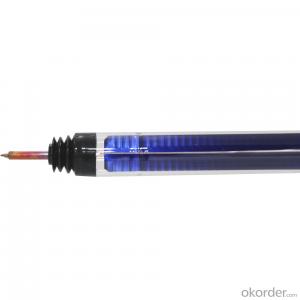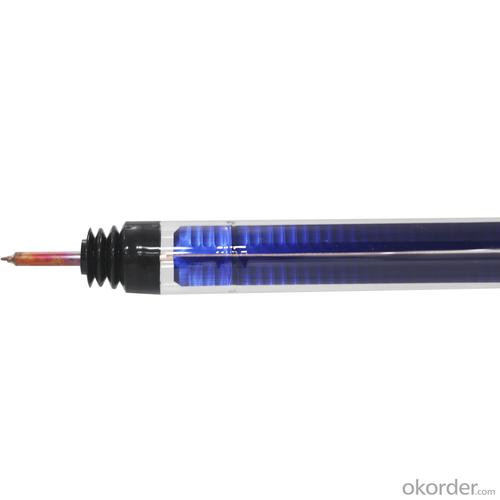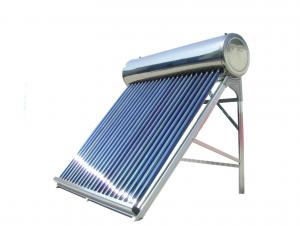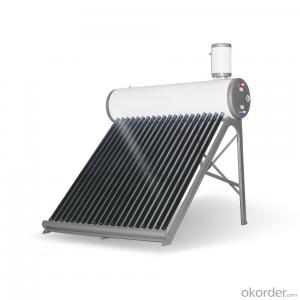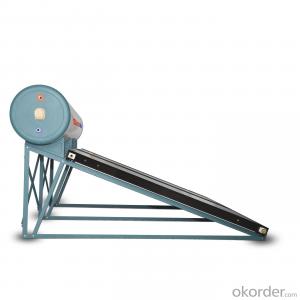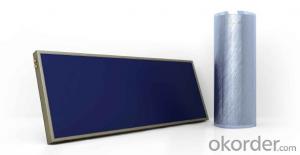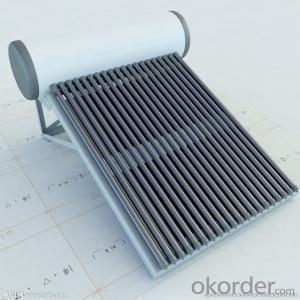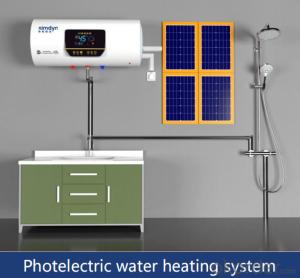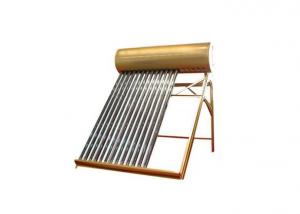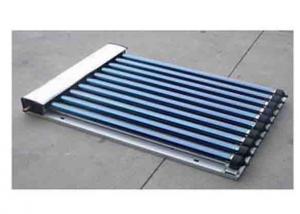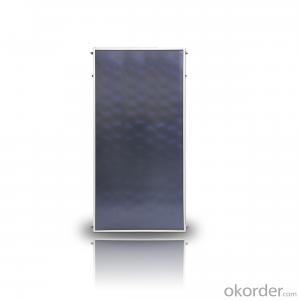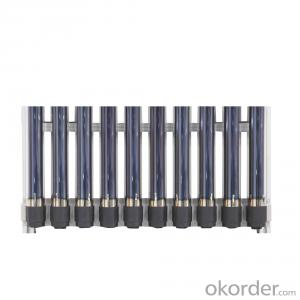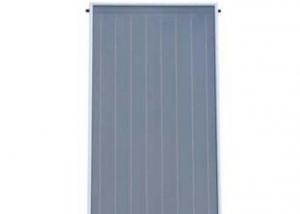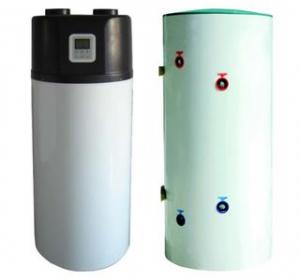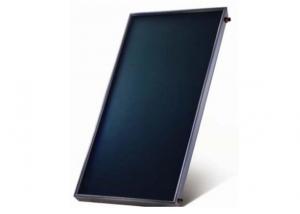Pvc Solar Water Heater Water Purifier
- Loading Port:
- China Main Port
- Payment Terms:
- TT OR LC
- Min Order Qty:
- -
- Supply Capability:
- -
OKorder Service Pledge
OKorder Financial Service
You Might Also Like
Copper-Zinc-Alloy: Removes the heavy metal molecule including Lead, Mercury, Copper, Aluminum etc.
Calgon coconut activated carbon: Have great absorption of chlorine, color, odor, organic chemicals and improve taste of water.
Ion exchange resin: Efficiently soften water, totally avoid the scale.
Mineralizing material: Release various of beneficial microelement such as Zinc, Manganese, Lithium, Molybdenum, Silicon and Boron etc.
Common water becomes into mineral water with Alkalescence.
Easy to install and maintain.
Counter of serving times equipped.
- Q: Solar water heater inside the water can drink it?In summer, the water inside the solar energy is very hot, and then put the water in the pot on the gas to burn, so you can quote?I said that the water in the solar energy into the pot in the boil, so you can drink it? The water inside the solar energy is not hot, put the pot inside the burning is not fast, faster than the direct release of cold water?
- The solar water inside with tap water what is the difference? It is best not to drink, because manufacturers do not know what you use the solar energy, some non brand solar energy
- Q: How does a solar water heater contribute to reducing carbon emissions?
- A solar water heater reduces carbon emissions by utilizing the sun's energy to heat water, eliminating the need for traditional fossil fuel-based heating methods. This renewable energy source significantly reduces the reliance on non-renewable energy sources, such as coal or natural gas, which release carbon dioxide when burned. By using solar power, a solar water heater helps to mitigate greenhouse gas emissions and contributes to a cleaner and more sustainable environment.
- Q: Can a solar water heater be used in areas with low water pressure?
- Yes, a solar water heater can be used in areas with low water pressure. Solar water heaters work by utilizing the sun's energy to heat the water, and they typically rely on a separate water tank or storage system. As long as the water supply is sufficient to fill the tank, low water pressure should not significantly impact the functioning of a solar water heater. However, it is advisable to consult with a professional or the manufacturer to ensure that the specific solar water heater model is suitable for low water pressure conditions.
- Q: Can a solar water heater be used in areas with limited biomass availability?
- Areas with limited biomass availability can still use solar water heaters. Unlike biomass-based water heaters, which require a constant supply of biomass fuel, solar water heaters utilize the sun's energy to heat water. This makes them an environmentally friendly and sustainable choice for areas where biomass availability is scarce. Solar water heaters employ solar collectors to capture the sun's heat, which in turn is transferred to the water within the system. As long as there is an ample amount of sunlight, solar water heaters can supply hot water without the need for biomass fuel. Nonetheless, it should be noted that solar water heaters may not perform as effectively in regions with low sun exposure or during cloudy days.
- Q: Can a solar water heater be used in areas with high levels of air pollution from industrial sources?
- In areas with high levels of air pollution from industrial sources, a solar water heater can still be utilized. Although air pollution has the potential to diminish the efficiency of solar panels, it does not render them completely ineffective. The primary reliance of solar water heaters is on sunlight rather than air quality in order to generate heat. Consequently, these water heaters can continue to function and supply hot water even in polluted areas. However, it is important to acknowledge that the efficiency of the solar water heater may be marginally reduced as a result of the decreased amount of sunlight reaching the panels. Consequently, it may take a bit longer to heat the water or necessitate larger panels to compensate for the diminished efficiency. Nevertheless, a solar water heater remains a viable and sustainable option for hot water production in areas with significant air pollution levels.
- Q: How long does it take to install a solar water heater?
- The installation of a solar water heater typically takes around 1-2 days, depending on the complexity of the system and the experience of the installation team.
- Q: Are there any safety concerns associated with a solar water heater?
- Yes, there are a few safety concerns associated with a solar water heater. These concerns include the risk of overheating, which can lead to scalding water or even explosion if not properly regulated. Additionally, the system requires proper insulation and protection against freezing temperatures to prevent damage to the solar panels or pipes. It is also important to regularly maintain and inspect the system to ensure safe and efficient operation.
- Q: Can a solar water heater be used to heat water for radiant floor heating?
- Yes, a solar water heater can be used to heat water for radiant floor heating. Solar water heaters use energy from the sun to heat water, which can then be circulated through pipes in the floor to provide radiant heat. This is an energy-efficient and sustainable way to heat water for radiant floor heating systems.
- Q: What is the impact of system monitoring and control on the performance of a solar water heater?
- The performance of a solar water heater is greatly affected by system monitoring and control. These mechanisms are crucial for ensuring that the system functions optimally, maximizes efficiency, and extends the lifespan of the equipment. To begin, real-time data collection and analysis are made possible through system monitoring. By continuously monitoring parameters such as temperature, pressure, flow rate, and solar radiation, any anomalies or deviations from expected values can be quickly identified. This early detection allows for immediate corrective actions to prevent potential system failures or damage. Furthermore, monitoring and control systems provide valuable insights into the performance of the solar water heater. By tracking key performance indicators like energy production, consumption, and efficiency, operators can evaluate the overall effectiveness of the system. This information helps identify areas for improvement, optimize performance, and reduce energy losses. In terms of control, these systems enable effective regulation of the solar water heater's operation. By automatically adjusting factors such as pump speed, valve positions, or collector angle, the control mechanisms optimize the energy transfer process. This ensures maximum heat absorption from sunlight and efficient heat transfer to the water. Precise control not only enhances performance but also minimizes energy wastage and reduces reliance on auxiliary heating sources. Moreover, system monitoring and control play a crucial role in maintenance and troubleshooting. Constant monitoring allows for the detection of any component degradation or malfunction. Early identification of issues enables timely maintenance or replacement, preventing potential system downtime and costly repairs. Additionally, control systems can provide alerts or notifications in the event of critical failures, allowing for immediate action to mitigate the impact on the solar water heater's performance. Overall, the impact of system monitoring and control on the performance of a solar water heater is profound. These mechanisms enhance efficiency, improve reliability, and prolong the system's lifespan. By continuously monitoring and controlling various parameters, deviations can be promptly addressed, optimizing energy transfer and reducing energy losses. Ultimately, this leads to increased energy savings, improved system performance, and a more sustainable and cost-effective use of solar energy.
- Q: Can a solar water heater be used in areas with high levels of air pollution from industrial emissions?
- Yes, a solar water heater can still be used in areas with high levels of air pollution from industrial emissions. The effectiveness of the solar water heater may be slightly reduced due to reduced sunlight reaching the solar panels, but it can still function and provide hot water. Regular cleaning and maintenance of the solar panels may be required to remove any accumulated pollutants and ensure optimal performance.
Send your message to us
Pvc Solar Water Heater Water Purifier
- Loading Port:
- China Main Port
- Payment Terms:
- TT OR LC
- Min Order Qty:
- -
- Supply Capability:
- -
OKorder Service Pledge
OKorder Financial Service
Similar products
Hot products
Hot Searches
Related keywords
